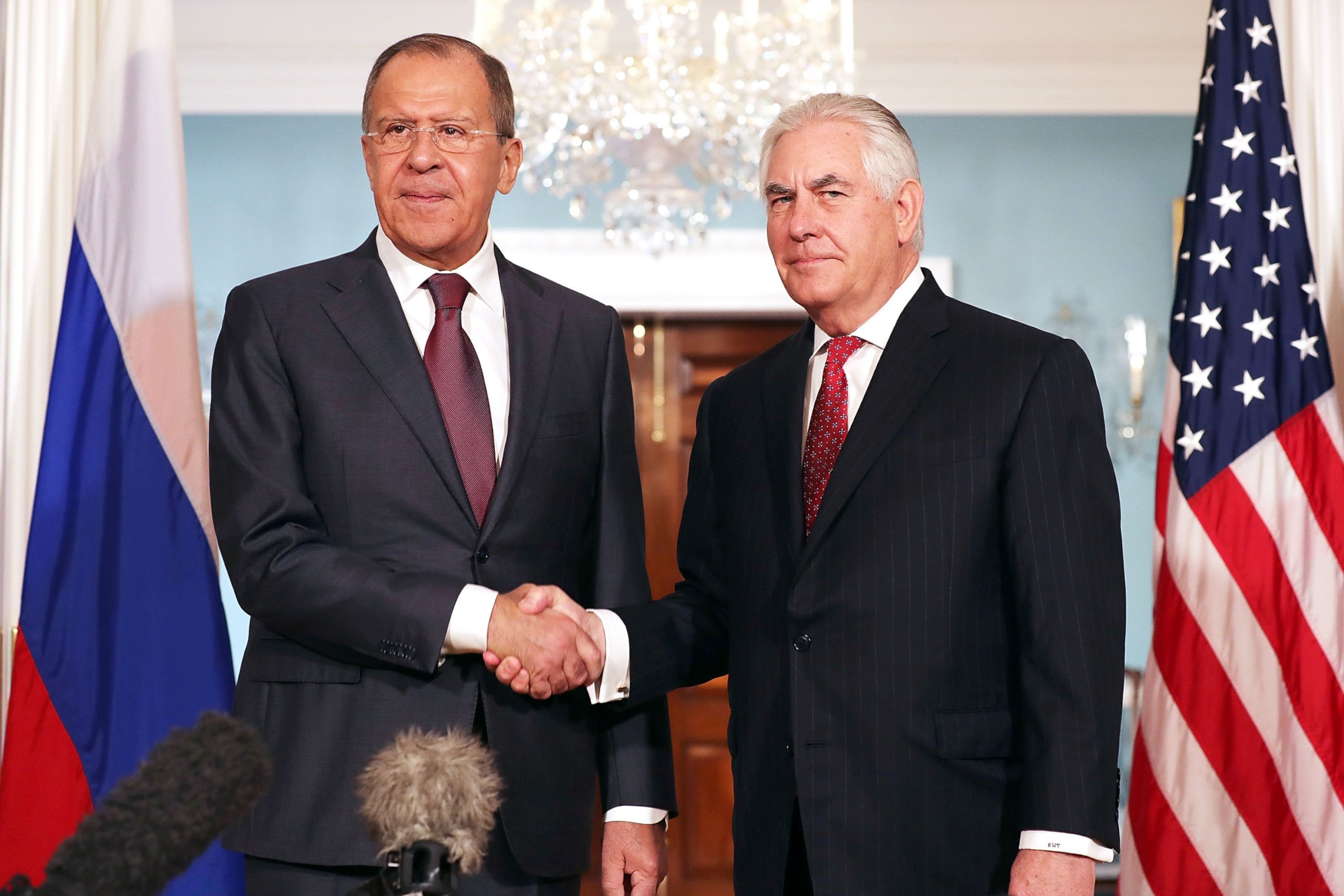US forces closure of Russia’s San Francisco consulate, 2 other diplomatic properties
A State Department spokesperson warned that the U.S. could have gone further.
— -- The U.S. is closing three Russian diplomatic properties in America in response to Russia's order that the U.S. cut its diplomatic staff in its country, the State Department announced Thursday, in a major deterioration of the relationship between the two countries.
Russia has until Saturday to close its consulate general and the consul's residence in San Francisco, a chancery annex in Washington, D.C., and a consular annex in New York City, according to State Department spokesperson Heather Nauert. The annexes in both cities house Russia's trade mission.
The move was a response to Russian President Vladimir Putin's order to the U.S. to close two diplomatic buildings, a warehouse and a recreational facility, and reduce its staff in the country by 755 employees. That demand, made at the end of July, had a Sept. 1 deadline. Nauert said today the U.S. had met that "unwarranted and detrimental" requirement but did not provide details of which staff members were cut or where.
The U.S. embassy and consulates' employees are largely Russian nationals, and there were reports that some 600 Russians would lose their jobs because of the cuts while 100 Americans would be forced to leave their posts. A senior administration official would only say that the U.S. had met the 455-employee cap the Russians imposed, affecting both American and Russian staffers -- although American staff would be reassigned.
Nauert warned that the U.S. could have gone further, in pursuit of "parity" in diplomatic staffing levels, but chose not to in order to avoid a "downward spiral" in the relationship.
"The United States hopes that, having moved toward the Russian Federation’s desire for parity, we can avoid further retaliatory actions by both sides and move forward to achieve the stated goal of both of our presidents: improved relations between our two countries and increased cooperation on areas of mutual concern," she said in a statement.
A senior administration official stressed that pursuit of better relations, saying today's actions was the U.S. "responding in this instance to the Russian desire for parity in the diplomatic relationship ... it is our hope that the Russians will recognize that since they were the ones who started the discussion on parity and we are responding and complying with what they required of us."

The closures will not affect Russian diplomats, according to the official. Staffers can be reassigned to other posts in the U.S. if Russia chooses. None will be expelled.
Russia has said its initial move to expel American diplomats was retaliation to former President Barack Obama's decision to expel 30 Russian diplomats and their families and take control of two facilities that were allegedly used for spying -- a decision made in response to Russia's interference in the 2016 presidential election.
In a call with Secretary of State Rex Tillerson, Russia's Foreign Minister Sergey Lavrov expressed "regret at the escalation of tensions" and said Russia will study the new measures before communicating its reaction, according to a statement from the Russian Foreign Ministry.
The senior administration official described that call as "very professional" and said both men agreed to find ways to improve the relationship from what Tillerson has described as a low point. The two will also meet on the sidelines of the United Nations General Assembly in New York in September, the official confirmed.
Acting Assistant Secretary for European and Eurasian Affairs John Heffern also conveyed the decision to Russian Deputy Chief of Mission Denis V. Gonchar at the Russian embassy in Washington. Russia's new Ambassador to the U.S. Anatoly Antonov begins his post Friday.
Ahead of the order, Russian officials had warned that further U.S. steps could be met with retaliation. Earlier on Thursday, Kremlin spokesperson Dmitry Peskov warned that "unfriendly" acts toward Russia cannot be left "without answer."
The cuts ordered by Russia are believed to reduce the U.S. embassy's staff by more than half, one of the most serious sanctions imposed on the U.S. diplomatic presence in the country since the Cold War. Last week, the embassy announced that it would temporarily stop processing non-immigrant visa applications due to the impact of the cuts. Visa processing was due to resume at the Moscow embassy on Friday but at a reduced pace -- and it will remain suspended at the U.S. consulates in three other Russian cities.
The U.S. ambassador to Moscow and Nauert have both said that was the result of the staff cuts and not meant as a retaliation, but Russian officials have accused the U.S. of trying to punish their citizens.
ABC News' Patrick Reevell contributed to this report.




